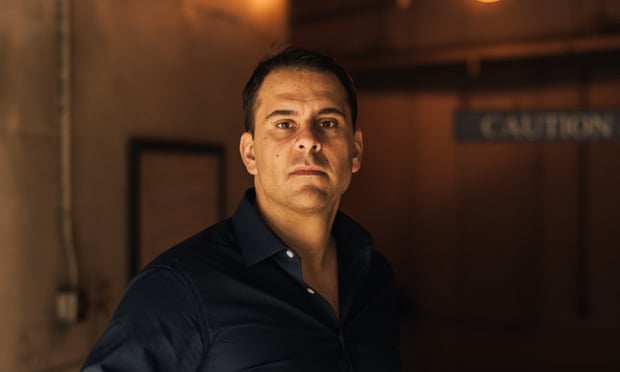James Verini is a contributing writer at the New York Times Magazine and National Geographic. In 2016 he went to cover the battle of Mosul, and Jonathan Franzen describes his book They Will Have to Die Now as a “thing of terrible beauty”.
Why did you want to go to Iraq?
The impetus was to write about life in the Islamic State. Isis was rapidly retreating from the parts of Iraq that it held and I wanted to go and talk to people there, including the former jihadis, and see what life was like for them. Once I arrived, it became immediately clear that the battle for Mosul would soon start and I decided to stay. Probably in the back of my mind was a grander motivation – namely that, as an American journalist, Iraq had been on my mind my entire professional career: 9/11 happened when I was 23, right out of uni, and it was the first big story that I covered. So jihadism and America’s place in the world and American adventures in the Middle East and Central Asia were on my mind.
The longer I stayed, the more I realised what [my] deeper motivations were: not just a curiosity and a certain kind of responsibility, but even a sense of guilt and shame, because I could see first-hand what my country did to this country. And Isis, make no mistake, was an outgrowth of the American invasion, a direct response to the political situation and social situation in Iraq that had been created by the American invasion.
You were embedded with the Iraqi Counter Terrorism Service (CTS) for a while. How did they take to that?
At first, they were happy to have us along. The soldiers wanted the international coverage, they knew they were fighting a war of global import, and one that the entire world was paying attention to. So, as long as we acted safely and took care of ourselves, they were happy; and the medic we had with us helped with patching them up, because even the Iraqi special forces are woefully lacking in combat medics. But soon enough the Iraqi military got really fed up with the journalists, which I couldn’t blame them for. There was just all manner of journalists, a lot of them freelance, running amok around Mosul in unprotected vehicles, not wearing flak jackets or helmets, getting themselves killed or injured, and I couldn’t blame the Iraqi military for eventually trying to kick us all out en masse. So, for much of the rest of the battle, I had to keep sneaking into Mosul to get into the company of commanders who knew me and liked me and would allow me to embed with them.
You are quite critical of some of the reporting from Iraq …
A lot of the coverage appeared to me to be roughly on the same spectrum of Isis’s own propaganda - fascinated by Isis’s sadism and its willingness to tape and broadcast that sadism, and it was not very telling, not very insightful.
You talk about the fatalism of the Iraqi soldiers, their expectation of death. “When you sign the CTS contract, you sign up to die”, as one of them puts it.
These guys had been in the midst of war for two generations. There was also the fact of Islam and the inherent fatalism of Islam: that your fate is in God’s hands and not yours, and there’s nothing you can do to change Allah’s will for you. I think there was also, among the Iraqi troops and Kurdish troops, a desire to show the jihadis that they too were comfortable with death, in tune with the jihadis’ “we love death more than you love life” ethos. There was certainly a lot of bravado. You’d see commanders waltzing around in the open without protecting themselves, knowing there were snipers around, taunting them. By the end of the battle, that had all changed: all of the soldiers I saw were in flak jackets and helmets. I think, as they saw a lot of their comrades get needlessly maimed and killed, they understood the value of the hardware.
What have you taken away from being there?
Yet more guilt, and more shame about America’s role in the destruction of Iraq over the last decade and a half. When you’re there, you see the effects of it endlessly and, if you’re not endlessly ashamed, then you ought to be. But also, at the end of the book, I descend [below the remains] of Nabi Yunus [mosque] with archaeologists and we come upon these [walls of] Assyrian lamassu, gorgeous winged bulls. With the exception of a handful of jihadis and soldiers, no one had seen them in centuries or millennia and it was a reminder of how far back this city goes, how far back Iraq goes. The fact that the civilisation in the city had survived for millennia – it will survive us, it will survive Isis, it will survive the Americans. And even though so much of it has been destroyed, so much of its past is yet to be discovered. That was very encouraging.
Source


 RSS Feed
RSS Feed